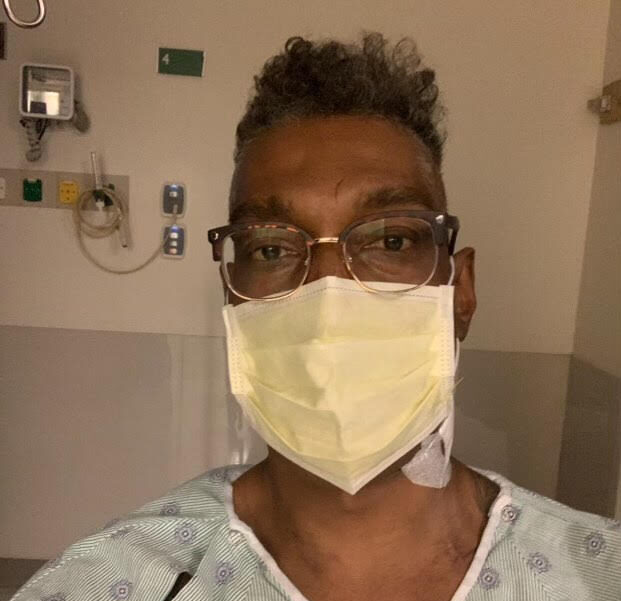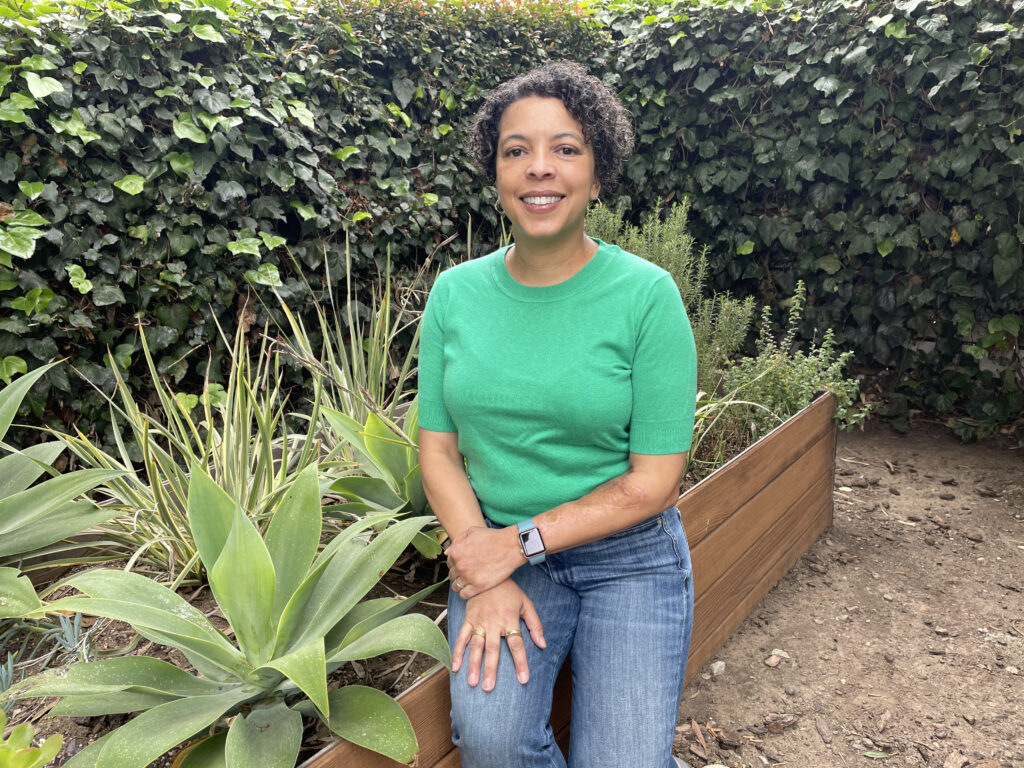RANCHO CUCAMONGA, Calif. — In the midst of the coronavirus pandemic in May 2020, Oliver Kellman’s heart and kidney failed. He required two transplants to survive.
When he went to the hospital on May 14, thinking he would probably need dialysis, he was told he needed a heart transplant within the next two or three weeks — or “you won’t make it in the middle of COVID,” Kellman, an attorney and lobbyist, recalled.
For Kellman, a 6-foot-4-inch-tall black man, the odds of finding a donor organ match were slim. The number of African Americans in need of organ transplants outpaces the number of black donors.

“While 28.7 percent of the total candidates currently waiting for transplants are black/African Americans, they comprised 12.5 percent of organ donors in 2019,” according to the Office of Minority Health in the U.S. Department of Health and Human Services.
The number of organ transplants performed on black/African Americans in 2019 was 25.8 percent of the number of black/African Americans waiting for a transplant, data from the Office of Minority Health shows.
The number of transplants performed on white Americans was 47.6 percent of the those waiting.
“The main issue is that … African Americans tend to have more diseases that degenerate into organ failure, especially kidney failure. There’s a lot of diabetes, a lot of liver disease, a lot of heart disease among African Americans that will turn into the great need for a lifesaving transplant,” said Tania Llavaneras of OneLegacy, a nonprofit organization for organ and tissue donation
“Currently, about 60 percent of the people waiting for a lifesaving transplant are people of color,” Llavaneras said.
Black, Hispanic and Native American Indian populations have significantly higher rates of high blood pressure, diabetes, obesity and heart disease. All increase the risk of kidney disease and heart disease. Access to healthcare may also play a role.

“Some years before my transplant,” Kellman said, “I had been told by doctors that I had an enlarged heart that was probably caused due to untreated hypertension, which ran in my family. I did not know at the time, but both my parents had high blood pressure, hypertension, and my brother has hypertension.
By June 2020, Kellman had found a group of doctors who put him in an extended induced coma to keep him alive until donors could be matched. A donor match was found a month later.
“They woke me up out of the coma about three-and-a-half, four weeks later, and they said … ‘We have good news, we have both the heart and the kidney transplant for you from two different people,’” Kellman said.
National Donate Life Month
April is National Donate Life Month, bringing attention to the need for Americans to register as organ and tissue donors.
There are more than 107,000 people in the United States on the waiting list for organ transplantations. Each day, 17 will die while waiting for a critical transplant.
“For many patients in need of a transplant, the best match will come from a donor from the same ethnic background,” according to the UK’s National Health Service. “Kidney donors and recipients are matched by blood group and tissue type, and people from the same ethnic background are more likely to have matching blood groups and tissue types. For other organs, there is a need to match blood groups, but less or no requirement to match tissue types.”
A liver transplant story
Leiauna Anderson learned she needed a liver transplant in 2005 after a sudden illness, which began with a miscarriage in her seventh month of pregnancy. As Anderson underwent medical procedures to address the end of her pregnancy, complications developed and her liver was failing. Without an immediate transplant, Anderson would die.

“At some point, my liver enzyme test came back in the thousands, and they’re supposed to be somewhere in the 20s to the 50s,” she said. “I not only had super high liver enzymes, which indicate some liver damage and an assault on the liver, but once they made an incision, they discovered my liver had ruptured, was becoming gangrene, and it was done. There’s no dialysis, there’s no stopgap, there’s no treatment for liver failure except for a transplant.”
On Jan. 24, 2005, Anderson’s husband was told she would not survive the day unless she received a transplant. They had a donor, but doctors said the liver was too big. In addition, the donor had been exposed to hepatitis B.
Anderson’s husband accepted the less than perfect liver, and surgeons propped up her ribcage on the right, so the liver could fit reasonably well. It did not take. On Jan. 27, Anderson received her second liver transplant. That’s the liver she lives with today.
For those needing transplants, separate organizations assess potential organ and tissue donors. If the candidate is approved, specialized surgeons recover organs and tissue. Then a separate team is responsible for getting the donated organs and tissue to designated recipients.
Both Kellmen and Anderson are committed to spreading the word about the importance of organ donation. They acknowledge that conversations about end-of-life can be difficult, particularly when people are in good health. But having conversations about organ donation and deciding to become a donor can help alleviate the responsibility of last-minute soul-searching for survivors.
Several states offer the option of being listed as an organ donor on a person’s driver’s license or state ID card.
(Edited by Judith Isacoff and Fern Siegel, Visuals edited by Claire Swift and Allison Itz)
The post How 2 Black Organ Transplant Recipients Beat The Odds appeared first on Zenger News.

